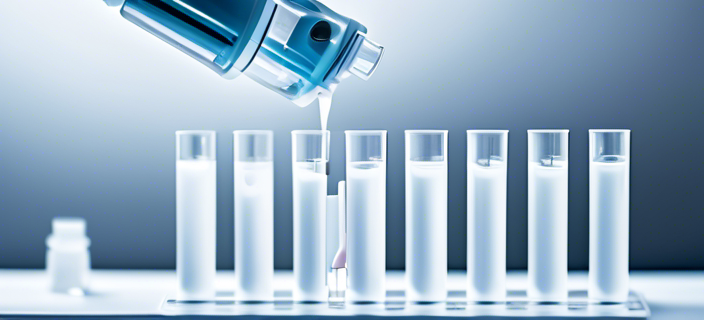Tech news from around the globe
By Riley Adams
The Dawn of AI in Drug Discovery
In the relentless pursuit of medical innovation, artificial intelligence (AI) has emerged as a beacon of hope, promising to revolutionize the pharmaceutical industry. At the forefront of this transformation is the Northeastern Institute for Experiential AI, which is exploring how AI can expedite the drug development process, potentially saving lives and reshaping healthcare as we know it.
 A glimpse into the future of pharmaceuticals with AI
A glimpse into the future of pharmaceuticals with AI
The COVID-19 pandemic underscored the urgent need for rapid drug development. Sam Scarpino, AI+Life Sciences director at the Institute, recalls the early days of the pandemic as a period marked by a dire lack of effective treatments. It wasn’t until scientists could extract antibodies from recovered patients that progress was made. Scarpino believes that with AI, this process could have been significantly accelerated. “With artificial intelligence in the loop, we could have had antibodies ready within three months of a target identification,” he asserts, highlighting the potential for AI to save lives and maintain societal norms during health crises.
Bridging the Gap Between AI and Medicine
The Institute’s upcoming webinar, featuring Scarpino and Giulia Menichietti, a faculty member of the Network Science Institute, aims to shed light on the groundbreaking work being done at the intersection of AI and pharmaceuticals. Their research focuses on utilizing AI to synthesize and analyze chemical compounds, design clinical trials, and identify patient populations that could benefit from new drugs.
 Giulia Menichetti and Samuel Scarpino, pioneers in AI-driven pharmaceuticals
Giulia Menichetti and Samuel Scarpino, pioneers in AI-driven pharmaceuticals
One of the most promising areas of their work involves designing antibody treatments using machine learning models. By collaborating with researchers across various domains, Scarpino hopes to leverage AI to develop treatments for rare and uncommon diseases. He cites the work of Northeastern chemistry professors Mike Pollastri and Lori Ferrins, who are focusing on neglected tropical diseases, as an example of the impactful research being conducted.
The Future of AI in Pharmaceuticals
The approach taken by the Institute is not reliant on vast datasets, which often come with high costs and extended development times. Instead, they focus on creating smart, thoughtfully curated datasets that can train AI models more efficiently. This strategy not only reduces costs but also accelerates the development process, making it a game-changer for the pharmaceutical industry.
Scarpino’s vision extends beyond immediate medical crises. He sees AI as a tool for global impact, capable of addressing a wide range of health challenges. “We have work in all of those spaces at Northeastern, so my role as the director of artificial intelligence and life sciences is to bring together faculty, research scientists, undergraduate students, Ph.D. students, and master students to focus broadly on AI and drug discovery,” he explains.
As the pharmaceutical industry stands on the brink of an AI revolution, the work being done at the Northeastern Institute for Experiential AI offers a glimpse into a future where drug development is faster, more efficient, and more accessible. With AI, the possibilities are endless, and the potential for positive impact on global health is immense.















